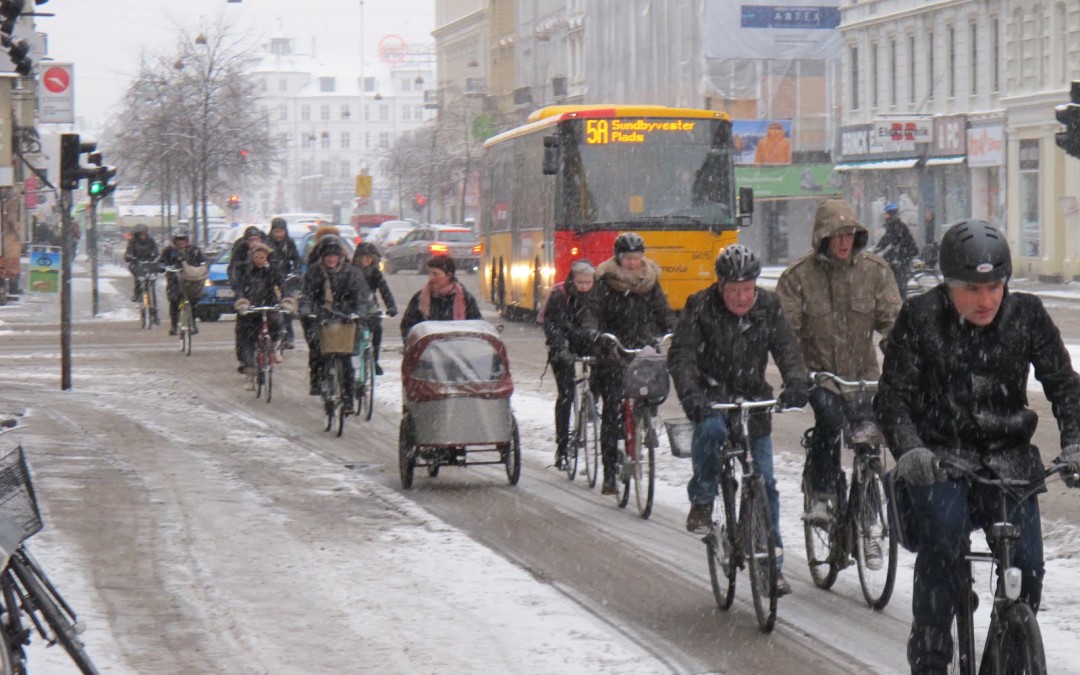Elinor Ostrom won the Nobel prize in 2009 in part for her observation that communities can solve the “crisis of the commons,” the problems caused by some people taking a “free ride” on the benefits of common resources at the expense of the future of the community. She argued for a polycentric approach to the problem of climate change. But even when the free-riders can be induced to pull their weight, individuals are overwhelmed by the scope of problems like climate change. Their own contributions seem too small to matter to the outcome.
In a new book, Climate Shock: The Economic Consequences of a Hotter Planet, authors Gernot Wagner of the Environmental Defense Fund, and Harvard economist Martin L. Weitzman propose the Copenhagen Theory of Change. Copenhagen has taken steps as a community to developed shared objectives that engage all members in taking the small steps that result in collective impact on problems. After the oil crisis, the residents made a collective decision to shift to bicycles as a primary mode of transportation. Today over half of the city commutes by bicycle every day.
Robert J. Shiller, in a NYTimes article this week, builds on the theory of community self-interest with a proposal for pursuing the idea of “climate clubs” that was first proposed in a presentation by William D. Nordhaus, his Yale colleague. Clubs offer the power of community efforts against obstacles that are too big for individuals to impact, and can demonstrate successes that will attract more people or cities or communities to want to gain membership.


